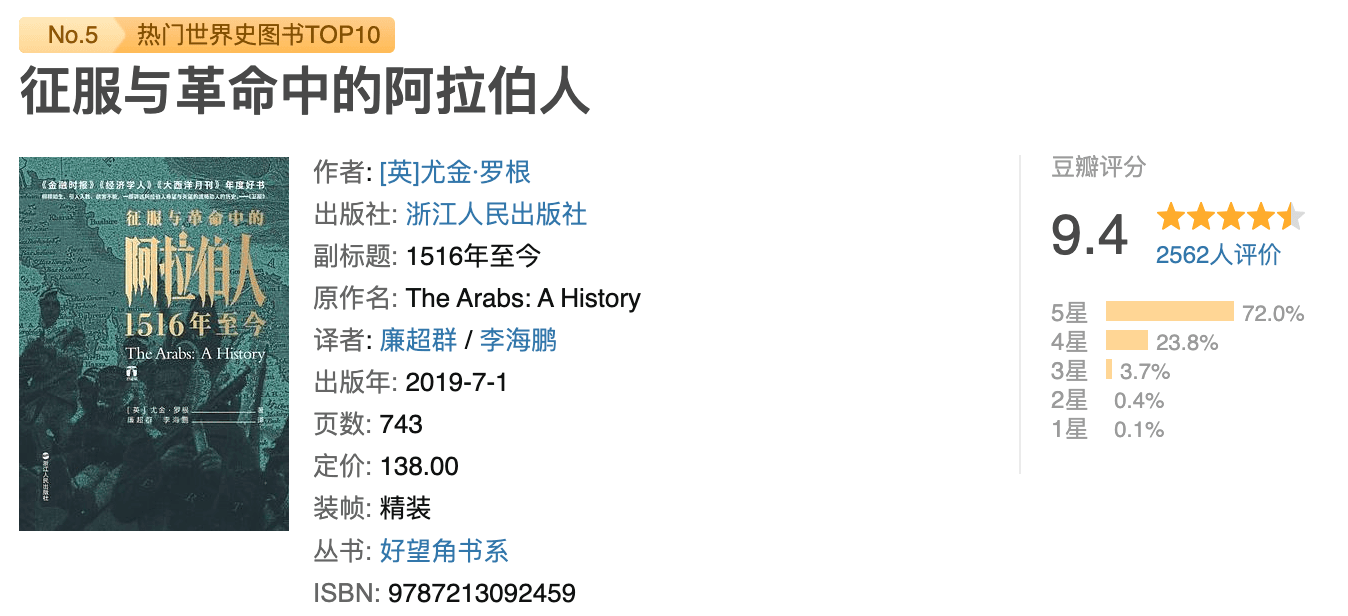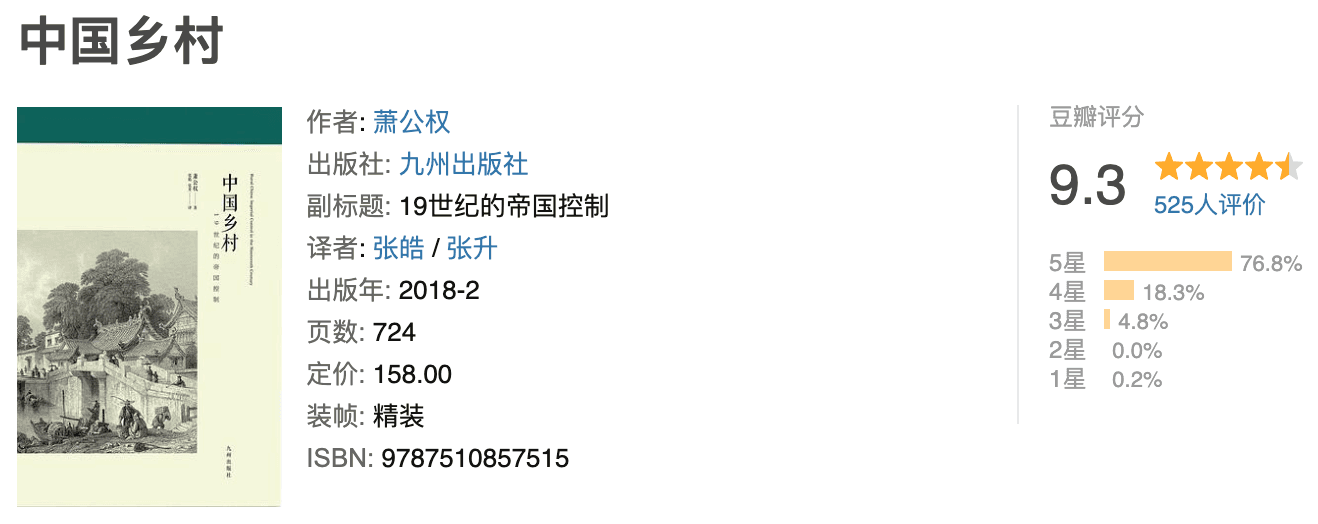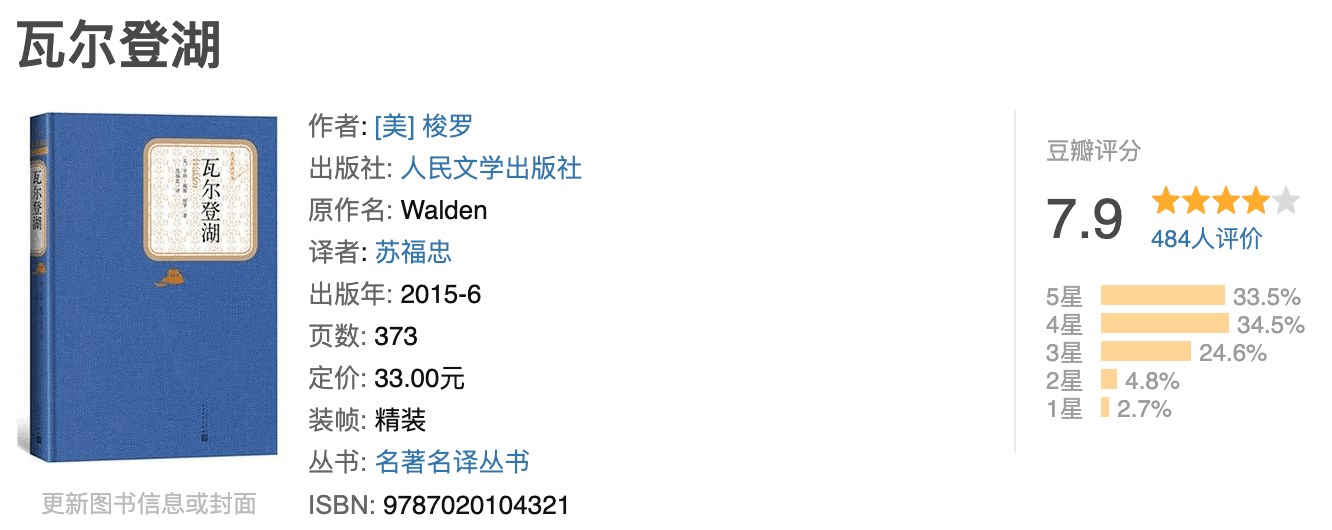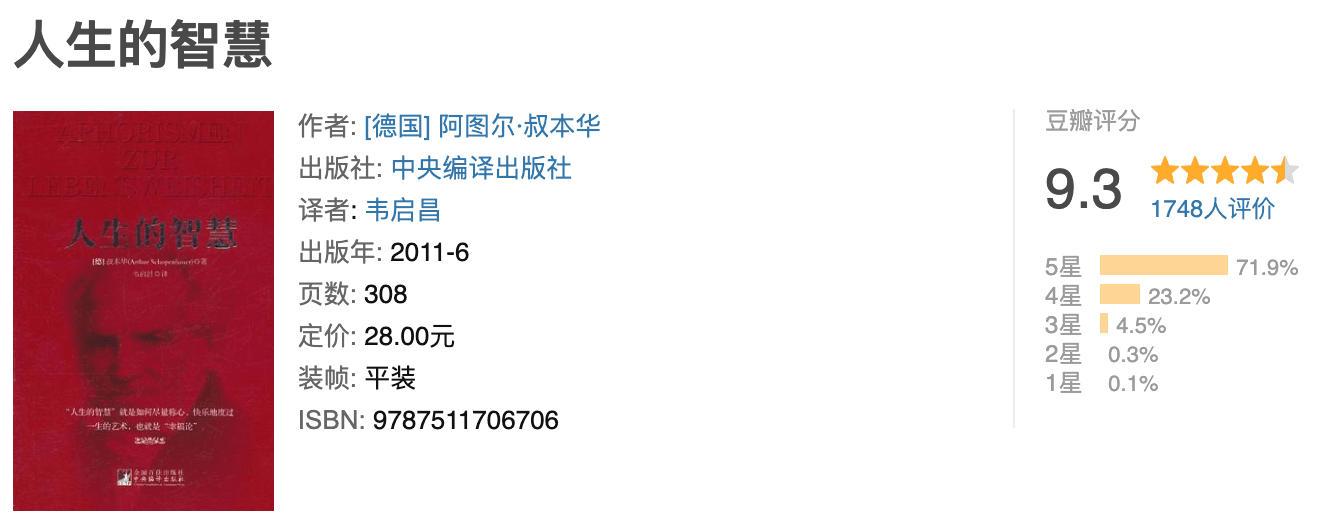"Arabs in Conquest and Revolution"#

"Arabs in Conquest and Revolution" is a well-structured book on Arab history, which provides detailed descriptions of Arab resistance against foreign rule, colonialism, Jewish aggression, and internal conflicts such as civil wars. However, the book's drawback is that most of its content is merely a list of historical events, lacking unique insights.
Throughout history, Arabs have always aspired to establish a unified nation. However, since gaining independence in the last century, the realization of this aspiration has become increasingly difficult. The primary contradiction within the entire nation used to be anti-colonialism and the establishment of a unified country. Subsequent contradictions have become more complex as Arabs carry multiple identities, such as citizens of their respective countries, Arabs, and Muslims. The serious conflicts between various sects of Islam have exacerbated the instability in the Arab world.
In addition, the existence of Israel as a Jewish state is also an unstable factor in the entire Arab world, and the Arab-Israeli conflict continues to this day. Therefore, dealing with conflicting interests among different factions externally and addressing the complexity of internal conflicts are necessary. The prospect of achieving peace and stability in the entire Arab world seems pessimistic.
"Chinese Countryside"#

I have been reading this book intermittently for a long time because it is lengthy and contains a lot of content. Just the quoted parts alone account for nearly one-third of the entire book, showing its meticulousness.
The book is divided into three parts: the administrative division of Chinese countryside, control over the countryside, and the effectiveness of control. I believe the second part, control over the countryside, is the essence. Control mainly involves maintaining public security, collecting taxes, dealing with famines, and controlling ideology. Only when public security is maintained can people live and work in peace, ensuring the empire's tax revenue. The ideology should not be too advanced, and the ideological orientation must serve the empire. As the most remote region of the empire, controlling the countryside is the most difficult yet crucial. A slight negligence can lead to a repetition of historical mistakes.
To maintain the stability of the Qing Dynasty's grassroots governance system, two conditions are necessary: a reliable and capable bureaucratic group to guide and supervise its operation, and a generally stable rural environment that allows ordinary people to maintain a relatively stable but not affluent life.
However, maintaining the stability of these two conditions is not easy. Firstly, the interests of the bureaucratic group do not always align with those of the imperial ruling class, so they will not be completely loyal to the emperor. Secondly, the emperor's suspicion and distrust of the bureaucratic group, as well as the intrusive control of grassroots officials over the countryside, have given rise to many corrupt practices in the bureaucracy, thereby slowing down the operation of the entire bureaucratic machine. Finally, frequent natural disasters and incompetent officials cannot guarantee a stable and peaceful environment.
The empire's control ultimately aims to maintain its rule. Obedient and docile subjects pose little threat to the empire, but it also severely damages their initiative and weakens the empire's material foundation. When the internal and external environment becomes increasingly harsh, the Qing court will taste the bitter fruits it has sown.
"Walden Lake"#

Thoreau's writing fails to move me. On the other hand, I prefer another simple and plain style of writing: "The Hat Girl Living on the Mountain" - a girl who suffers from depression and moves away from the city to live a self-sufficient life on a mountain in Yunnan, China.
"Bouquet for Algernon"#

This is a story about Charlie, an intellectually disabled person who becomes intelligent after undergoing surgery, but eventually reverts back to his original state due to the side effects of the operation. The entire story is told from Charlie's first-person perspective, and the writing style changes along with Charlie's transformation.
Although the story covers only a few months in Charlie's life, it resembles a person's entire life journey - from ignorance and innocence to gradually becoming intelligent, breaking free from foolishness, but encountering more complex troubles, and finally growing old and losing memories, returning to the ignorant state of childhood.
"The Wisdom of Life"#

This book contains selected thoughts of Schopenhauer, mainly focusing on three aspects: one's attitude towards oneself, towards others, and towards other things in the world. Although the content is scattered, there are occasional profound statements, such as "The cheapest form of pride is national pride. The man affected with it reveals a deficiency in his own qualities that he would fain cover up by sheltering himself under those of his nation." and "The essence of happiness is negative, while the essence of suffering is positive."
Attitude towards oneself:
- Know oneself, especially knowing what is of primary importance and what is secondary.
- Maintain simplicity and avoid excessive desires.
- Reflect diligently and seek a better way of life.
- Take a detached view of past events. Everything that happens is inevitable and unavoidable.
Attitude towards others:
- Regarding communication, if there is a clash of ideas, there is no need to rely on alcohol or other external substances.
- When waiting, one should think or contemplate rather than randomly fiddle with objects. For many people, watching completely replaces thinking.
- Friends may not be sincere, but enemies are always sincere. Criticism from enemies can serve as a bitter medicine to better understand oneself.
- Displaying one's own intelligence and wisdom is indirectly accusing others of being foolish and incompetent.
- Avoid emphasizing one's words, as the understanding of ordinary people is slow, and by the time they understand the meaning of our words, we have already finished speaking.
Attitude towards other things in the world:
- Remember the role of time and the ephemeral nature of things.
- Do not overly concern oneself with certain matters, as things are constantly changing and our judgments of them are illusory.
- Things commonly referred to as fate are usually the result of our own foolish actions.
It is evident that Schopenhauer was influenced by Stoicism, and the entire book reflects Stoic philosophy throughout.